Dr Steve Lennon, Dr Ben Ngubane (Minister of DACST) and Dr MJ Hlongwane at the 1999 NSTF Plenary meeting
1991
The pre-cursor of the NSTF, the Science and Technology Initiative, called the Science and Technology Initiative, was part of the negotiations held during the Convention for a Democratic South Africa (CODESA).
1995
The NSTF is founded to oversee the development of a democratic and inclusive science system, later to be re-defined and called the National System of Innovation (NSI). There are joint chairs: Jay Naidoo, the first Secretary-General of the Congress of South African Trade Unions (COSATU) and Dr James Brian Clark, then-president of the Council for Scientific and Industrial Research (CSIR).
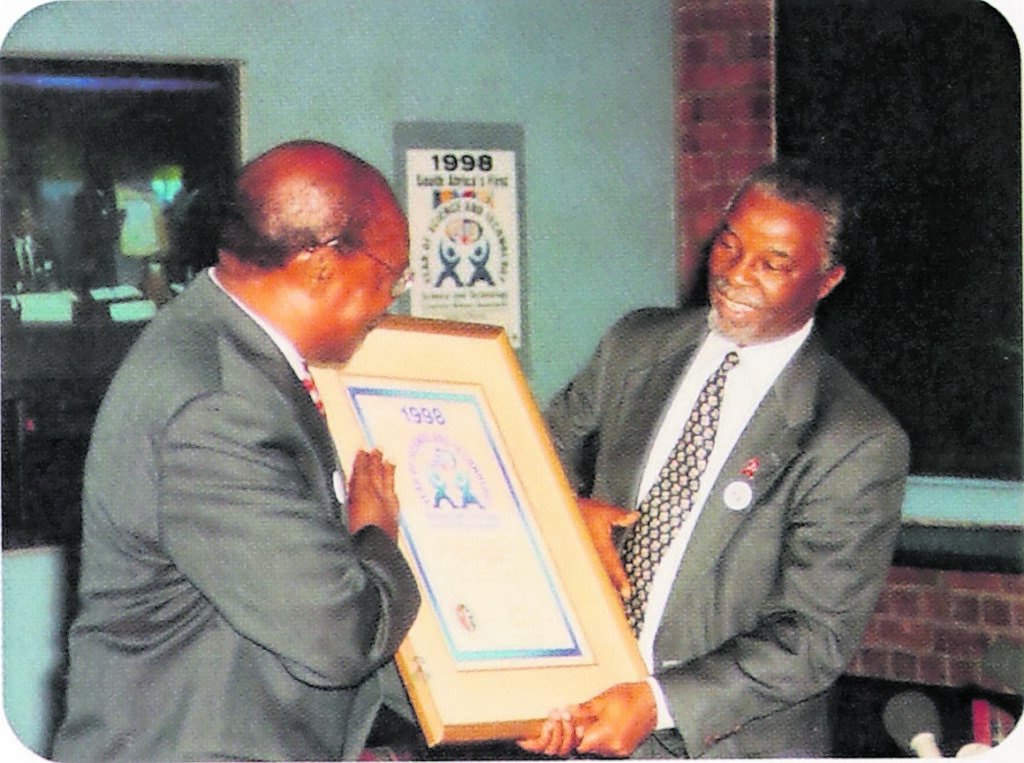 Deputy President
Thabo Mbeki
launching YEAST in 1998
Deputy President
Thabo Mbeki
launching YEAST in 1998The NSTF contributes to the first White Paper on Science and Technology and other policy and planning processes within government. It initiates the discussion that leads to 1998 being South Africa’s first Year of Science and Technology (YEAST).
1997
The first CEO is appointed, Dr Xolani Humphrey Mkhwanazi. He is seconded by the CSIR to build up the NSTF. (The CSIR is a founding member of the NSTF).
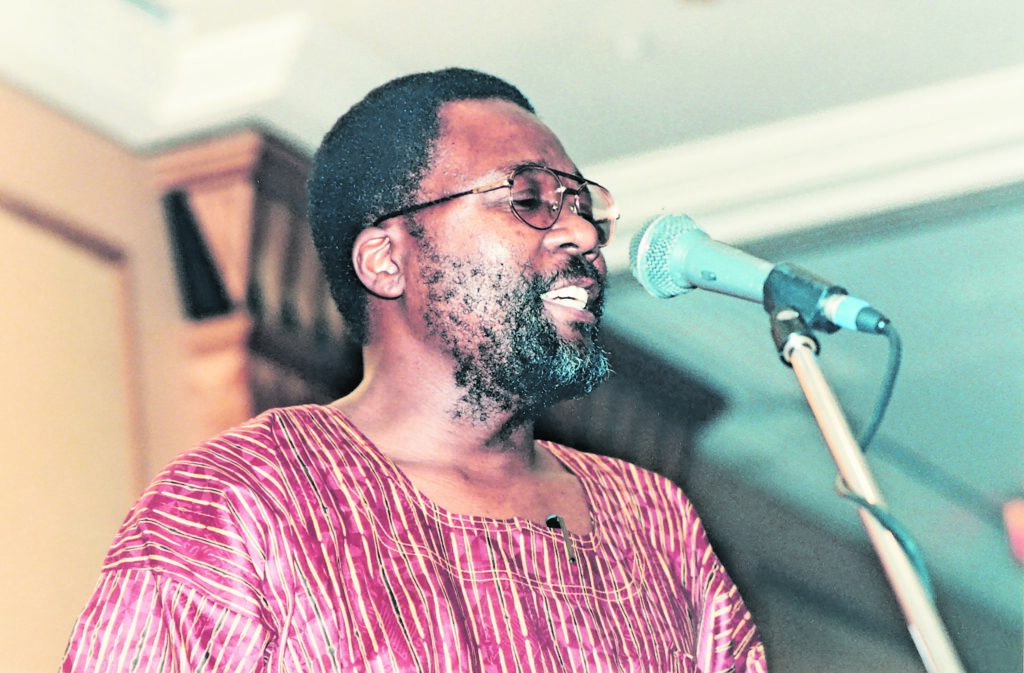 Dr Xolani Mkhwanazi
Dr Xolani Mkhwanazi At the time he is the Technology Transfer Manager, Technology for Development division at the CSIR. The first chair is Prof Malegapuru William Makgoba, then-President of the South African Medical Research Council (SAMRC). He goes on to receive the Order of Mapungubwe in Silver in 2013.
1998
The NSTF establishes the prestigious annual NSTF Awards to reward excellent achievements in science, engineering and technology (SET). The then-Department of Arts, Culture, Science and Technology (DACST) becomes the first sponsor of the awards, and this continues until today through the Department of Science and Innovation. From the start, the Minister of Science and Technology has served as the awards’ patron. Denis Hunt is appointed Head Adjudicator and continues in this position until present. Also in the year, the NSTF is part of establishing the National Research Foundation (NRF). The NSTF launches its first website and first newsletter.
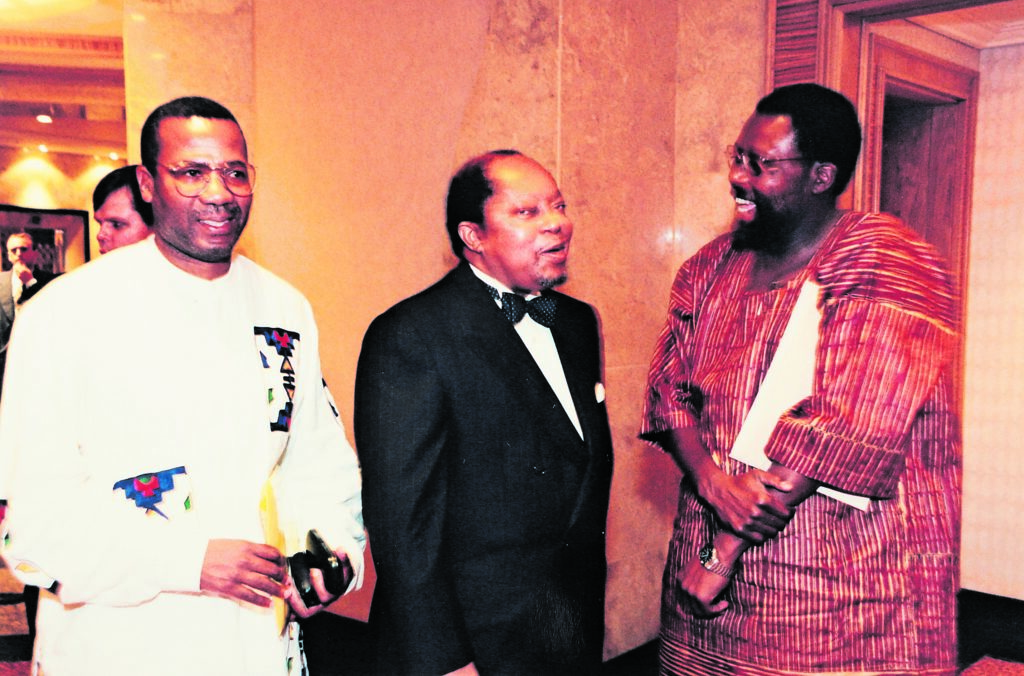 Prof Makgoba welcoming Minister Sibusiso Bhengu, the then Minister of Education
Prof Makgoba welcoming Minister Sibusiso Bhengu, the then Minister of Education1999
The second CEO is Dr Mziwenkosi James Hlongwane. He previously, for 13 years, had founded and ran a school for science and technology for black learners. The second chairperson is Dr Steve Lennon, then-managing director of Eskom Resource and Strategy.
2000
The Science, Technology, Engineering and Mathematics Education Initiative results in a National Consultative Conference On Science, Mathematics And Technology Education (SMTE) in 2000 in partnership with the Department of Education (DoE) and DACST. The then-Ministers of the Departments, Prof Kader Asmal and Dr Ben Ngubane, officiate at the launch.
2001
The SMTE Conference results in a national SMTE strategy by the DoE, where the then-Deputy Minister of Education, Mosibudi Mangena, officiates with then-Deputy Director-General of Education, Ketsi Lehoko. The NSTF Awards expands to include SMTE in schools with the NSTF Education Recognition Programme (ERP). This becomes the NSTF Brilliants Programme, only focusing on boys and girls that are top performers in matric science and mathematics. The NSTF commissions a joint study between the NSTF and the National Advisory Council on Innovation (NACI) on the interaction between economic growth, science, technology and human capital. The resulting Growth and Innovation Report is presented jointly to the Portfolio Committee in Parliament.
2002
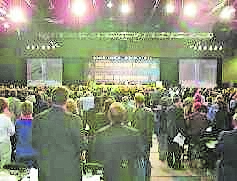 The World Summit on Sustainable Development event
The World Summit on Sustainable Development eventThe NSTF is part of creating and reviewing the National Human Resource Development Strategy, the National Research and Development Strategy and the National Research and Technology Foresight Exercise. The NSTF also initiates discussions on “Ethics in SET in South Africa”, which leads to a discussion document and a charter for establishing a National Consultative Council on SET Ethics in South Africa.
The NSTF participates in lobbying for a separate government department that focuses solely on SET in SA. The structure and plans for the new DST are presented to the NSTF and its members for comment. The NSTF receives accreditation from the World Summit on Sustainable Development (WSSD), allowing NSTF members and stakeholders to register as participants; 60 organisations then do so.
2003
The third NSTF chairperson is appointed, John Marriott, retired General Manager: Sasol Limited. He is the first from private industry. His focus is on continuing to build a strong SET community, essential for promoting development and economic growth. The NSTF and NACI commit to co-operating on issues of common interest and promoting the NSI. This is driven by their respective executive committees and the then-Minister. From then on, NACI has a permanent seat on the NSTF Executive Committee. The NSTF contributes to the development of the science and technology division of the New Partnership for Africa’s Development (NEPAD) to ensure that SETI plays its rightful role on the African continent.
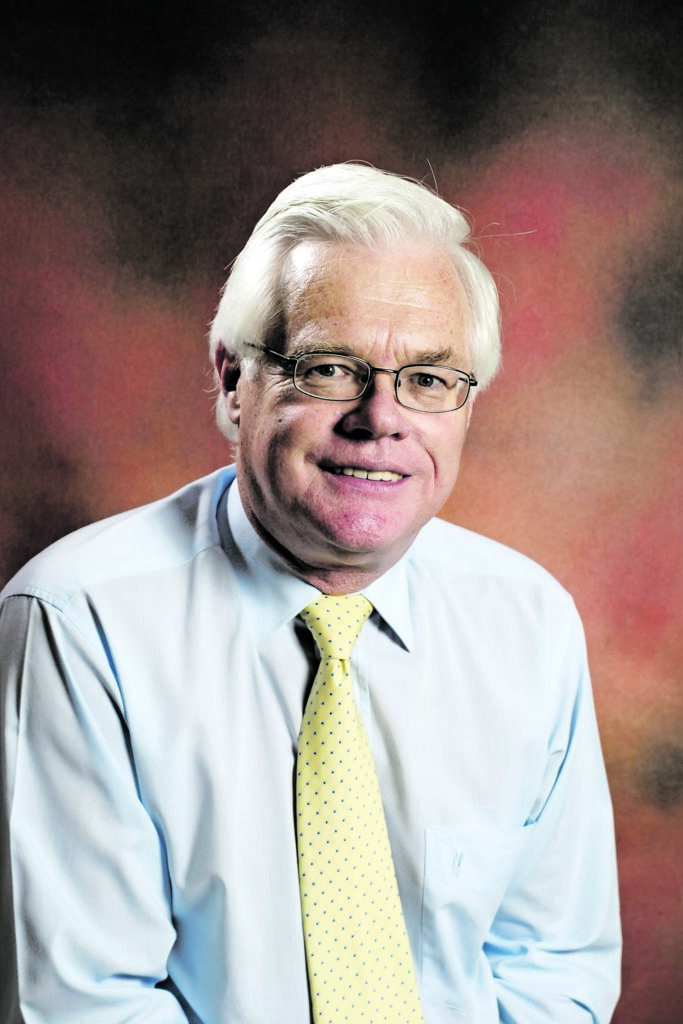 John Marriott, third NSTF chairperson
John Marriott, third NSTF chairperson The NSTF creates a new membership group, known as SETAG (Scientific, Engineering and Technological Societies and Allied Professions Group of South Africa). It consists of professional bodies and learned societies. Some of the membership of the Associated Scientific and Technological Societies of South Africa (AS&TS) join the NSTF under SETAG, which is renamed proSET (Professional in Science, Engineering and Technology) in 2009.
2004
Eskom and the NRF each create three NSTF Awards categories. These recognise senior and emerging researchers, as well as research capacity development. The six new awards promote inclusiveness — the four awards sponsored by the NRF are awarded to black researchers and split between men and women. The two research capacity development awards, sponsored by Eskom, are made to researchers who have supervised a large number of black postgraduate students. The Eskom partnership continues until present. The CSIR becomes an awards sponsor. The Technology and Human Resources for Industry Programme (THRIP), an initiative of the Department of Trade and Industry (DTI) and the NRF, becomes an awards sponsor. The first NSTF Awards “Who’s Who in SETI” booklet is published and they have been produced every year since. These provide a list of the achievements, skills and expertise of the finalists.
2005
NSTF workshops extend to other provinces. These later become the NSTF Discussion Forums that are still part of NSTF activities. The Science Councils and Statutory Bodies sub-committee is formed.
2006
Jansie Niehaus is appointed as Executive Director of the NSTF. She remains in this position to date. Her focus is on making the NSTF more active and visible and to expand and improve its activities and reach. This is done with the help of the Exco, Manager Wilna Eksteen and staff. The South African Agency for Science and Technology Advancement (SAASTA), a business unit of the NRF, partners with the NSTF to introduce a new award for science communication and outreach. Policy consultations are held on the NSI and the DST’s 10 Year Innovation Plan. The DST presents to the NSTF membership about their plans for the Technology Innovation Agency, Human Capital Development, the Youth into Science Strategy and the Hydrogen Economy.
2007
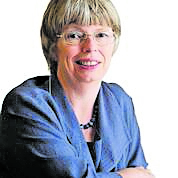 Prof Brenda Wingfield
Prof Brenda WingfieldProf Brenda Wingfield is appointed the fourth chairperson (and first woman). At the time, she is Professor of Genetics at the University of Pretoria and Deputy Dean of Research and Postgraduate Studies, as well as DST/NRF South African Research Chair Initiative: Chair in Fungal Genomics. The NSTF manages the National Youth Service (NYS) programme on behalf of the DST for five years, benefitting 330 young unemployed SETI graduates. The NYS provides science graduates with additional skills to enable them to find suitable employment.
2008
NSTF Awards celebrates its 10th anniversary. The NSTF Brilliants Programme comes into being. Later, educational tours to SETI-related sites and national research facilities are included in the programme.
Awards trophy 1998 to 2014
2009
The NSTF Share ‘n Dare Programme is initiated to inspire the youth and public with the NSTF Awards Winners as SETI role models.
2010
NSTF Discussion Forums on specific topics replace the workshops, as well as the discussions at the twice-yearly plenary meetings.
2011
BHP Billiton becomes the first co-branding sponsor of the NSTF Awards. They are the first large private sector partner.
2013
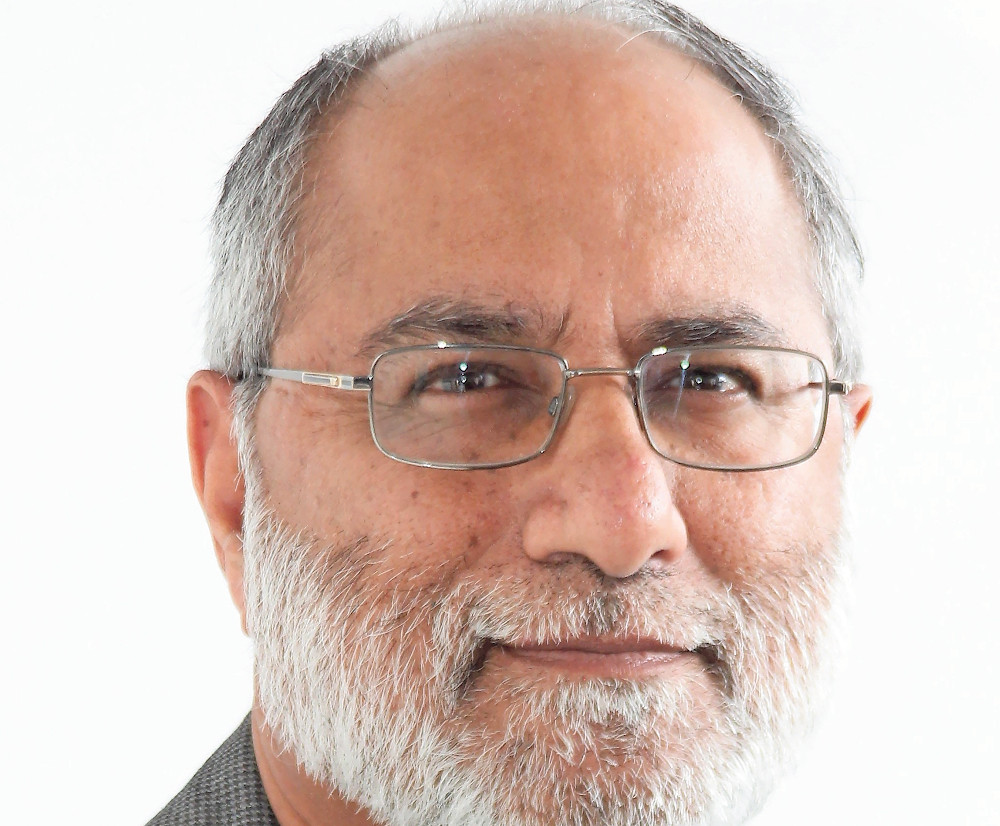 Professor Ali Dhansay, NSTF Chair
Professor Ali Dhansay, NSTF ChairProf Muhammad Ali Dhansay is appointed as the new NSTF chairperson and continues to serve to date. At the time, Prof Dhansay was the Director of the SAMRC’s Nutritional Intervention Research Unit.
2015
The new NSTF Awards trophy, manufactured from titanium and using additive manufacturing (3D printing), is launched to celebrate the NSTF’s second decade. The first Special Annual Theme Award is introduced, recognising an outstanding contribution in photonics research and innovation.
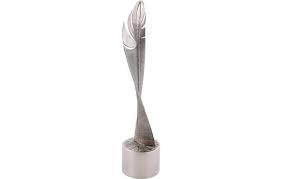 New NSTF Awards trophy
New NSTF Awards trophyThe awards theme celebrates the United Nations International Year of Light and Light-based Technologies. Henceforth annual themes are adopted for the awards. GreenMatter partners with NSTF to launch a new award for contributions to environmental sustainability, biodiversity conservation and the green economy.
2016
When BHP Billiton demerged, South32 is established as a company. It takes over the co-branding partnership of the NSTF Awards. The Carl & Emily Fuchs Foundation becomes the sponsor of all NSTF youth programmes, including the bursary directory.
2017
The Water Research Commission (WRC) partners with the NSTF to launch a new award that recognises contributions to sustainable water management, knowledge generation and solutions. The Network of Data and Information Curation Communities (NeDICC) cofounds the new Data for Research Award. The South African Astronomical Observatory (SAAO) and the South African Radio Astronomy Observatory (SARAO) join forces with the NSTF to initiate a national astronomy tour for the Brilliants students.
2018
The NSTF organises DST consultations to review the existing White Paper and participates in the launch of DST’s new Science, Technology and Innovation White Paper. The NSTF celebrates 20 years of the NSTF Awards. To celebrate, the first CEO of the NSTF, Dr Xolani Mkhwanazi, is awarded the NSTF Ukhozi Award for an essential contribution to the NSTF and South Africa.
2019
Innovation is rewarded when the National Intellectual Property Management Office (NIPMO) partners with the NSTF to sponsor the Innovation Award to a small, medium or micro enterprise (SMME).
2020
The NSTF is 25 years old. It celebrates its Silver Jubilee as an established player in the NSI, with a loyal and representative membership, a wide network and reach, an all-inclusive platform for recognition of excellence, a neutral platform for discussions, and as promoter and influencer of SET and innovation in South Africa.